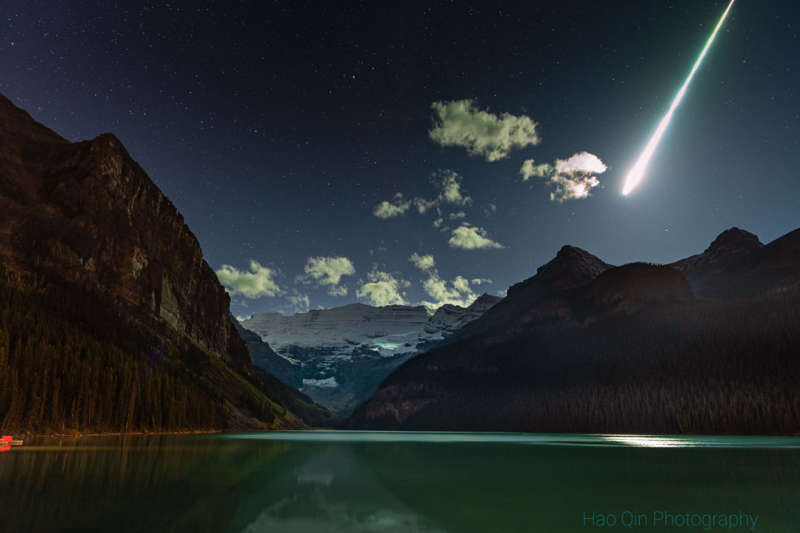
|
Credit & Copyright: Hao Qin
Explanation:
What makes a meteor a fireball?
First of all, everyone agrees that a
fireball is an exceptionally bright meteor.
Past that, the
International Astronomical Union
defines a fireball as a meteor brighter than
apparent magnitude -4,
which corresponds (roughly) to being brighter than any planet --
as well as bright enough to cast a human-noticeable shadow.
Pictured, an astrophotographer taking a long-duration sky image
captured by accident the brightest
meteor
he had ever seen.
Clearly a fireball,
the disintegrating space-rock created a trail so bright it
turned night into day for about two seconds earlier this
month.
The fireball
has been artificially dimmed in the featured image to bring up foreground
Lake Louise in
Alberta,
Canada.
Although
fireballs are rare,
many people have been lucky enough to see them.
If you see a fireball, you can
report it.
If more than one person recorded an image, the
fireball might be
traceable back to the
Solar System body from which it was
ejected.
|
January February March April May June July August September October November December |
| ||||||||||||||||||||||||||||||||||||||||||||||||
NASA Web Site Statements, Warnings, and Disclaimers
NASA Official: Jay Norris. Specific rights apply.
A service of: LHEA at NASA / GSFC
& Michigan Tech. U.
Based on Astronomy Picture
Of the Day
Publications with keywords: fireball
Publications with words: fireball
See also:
